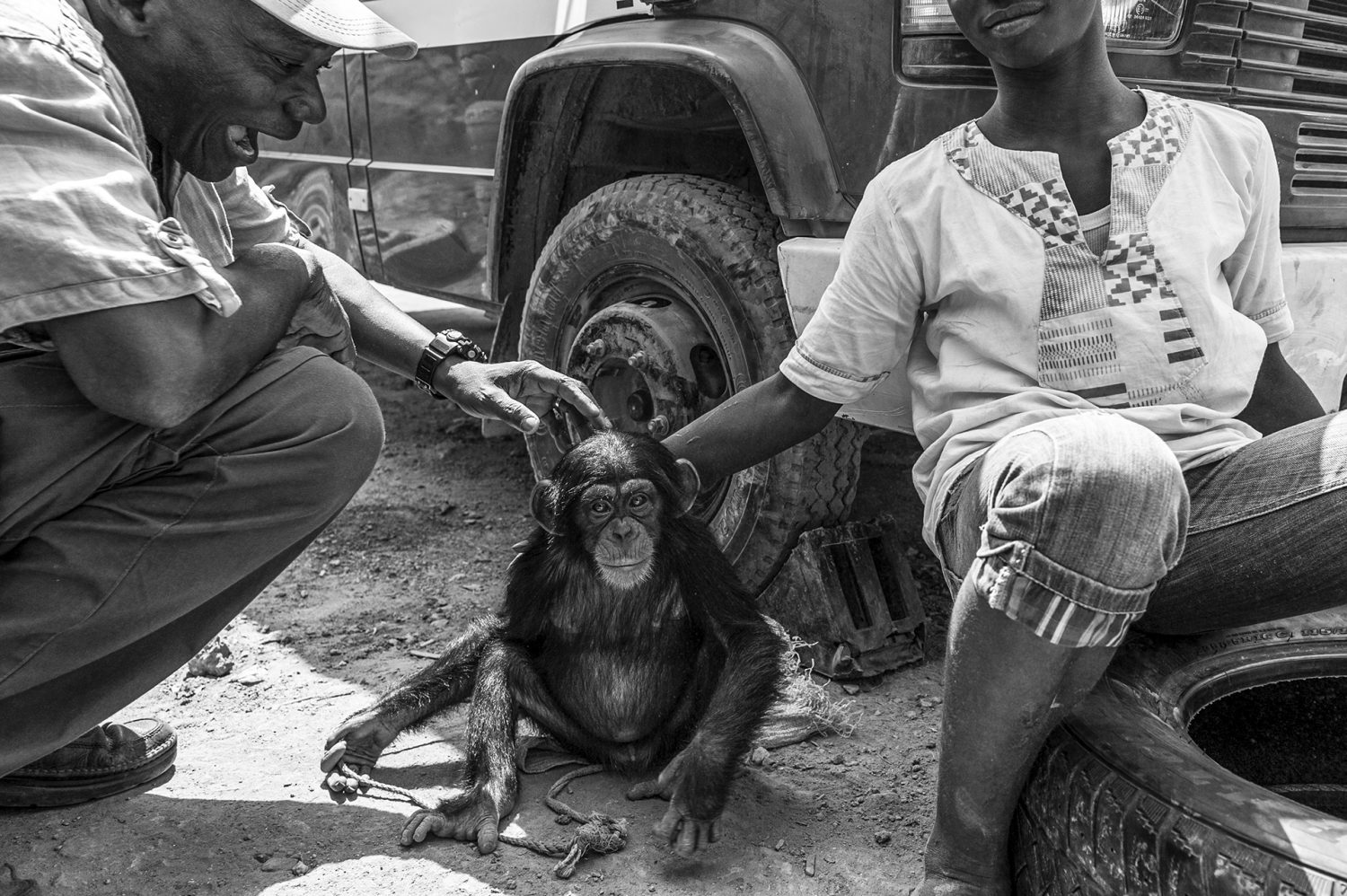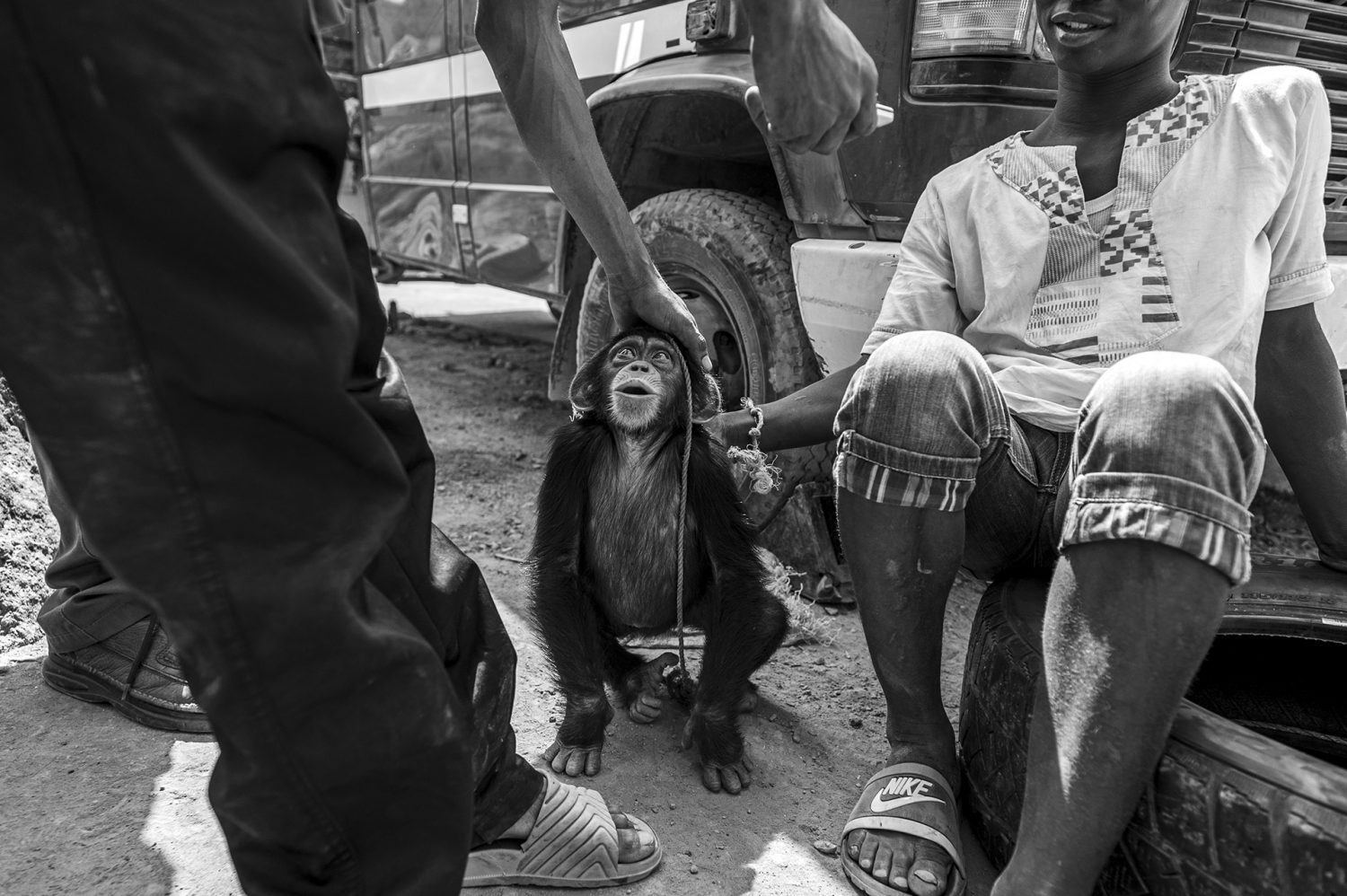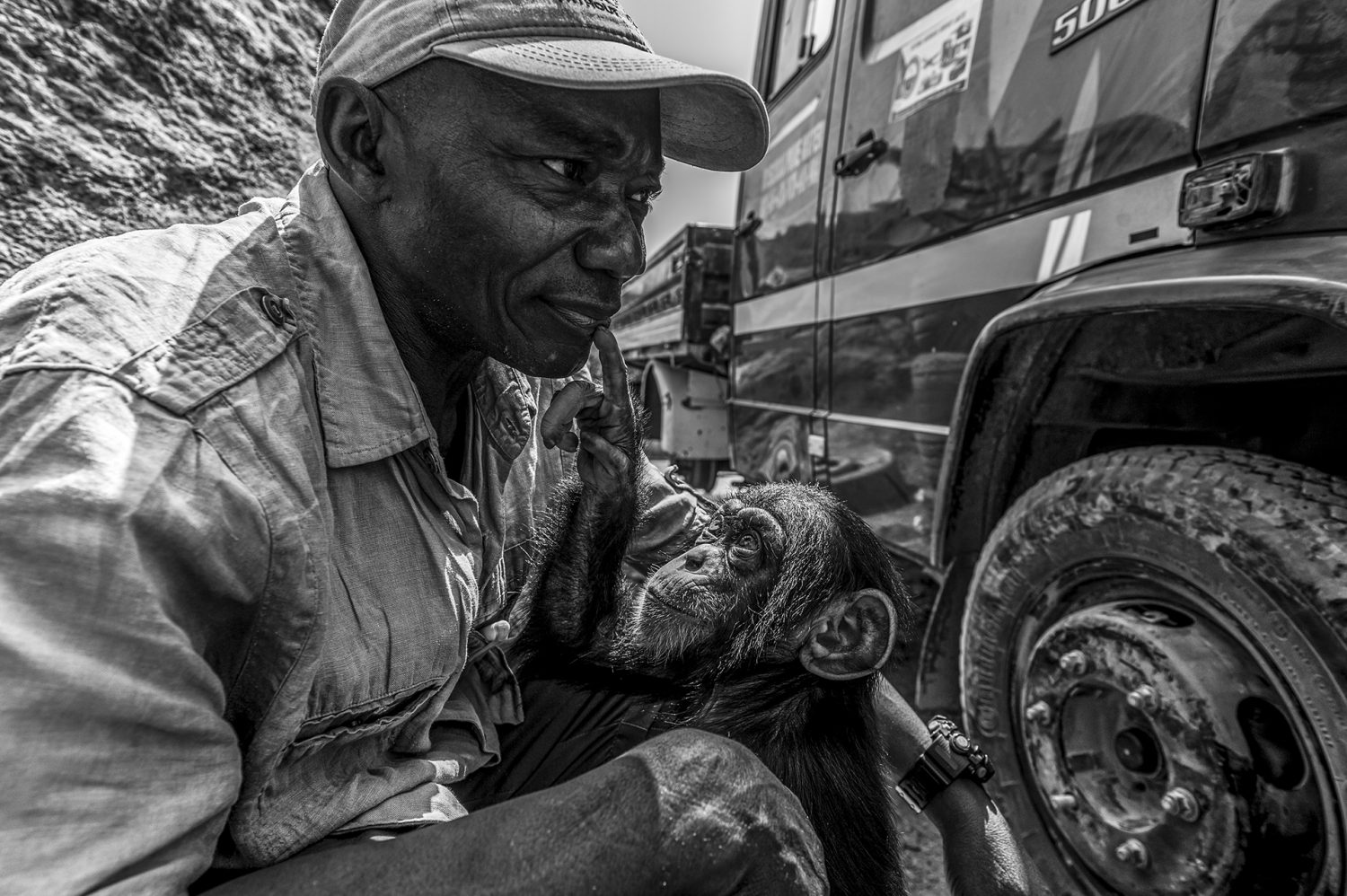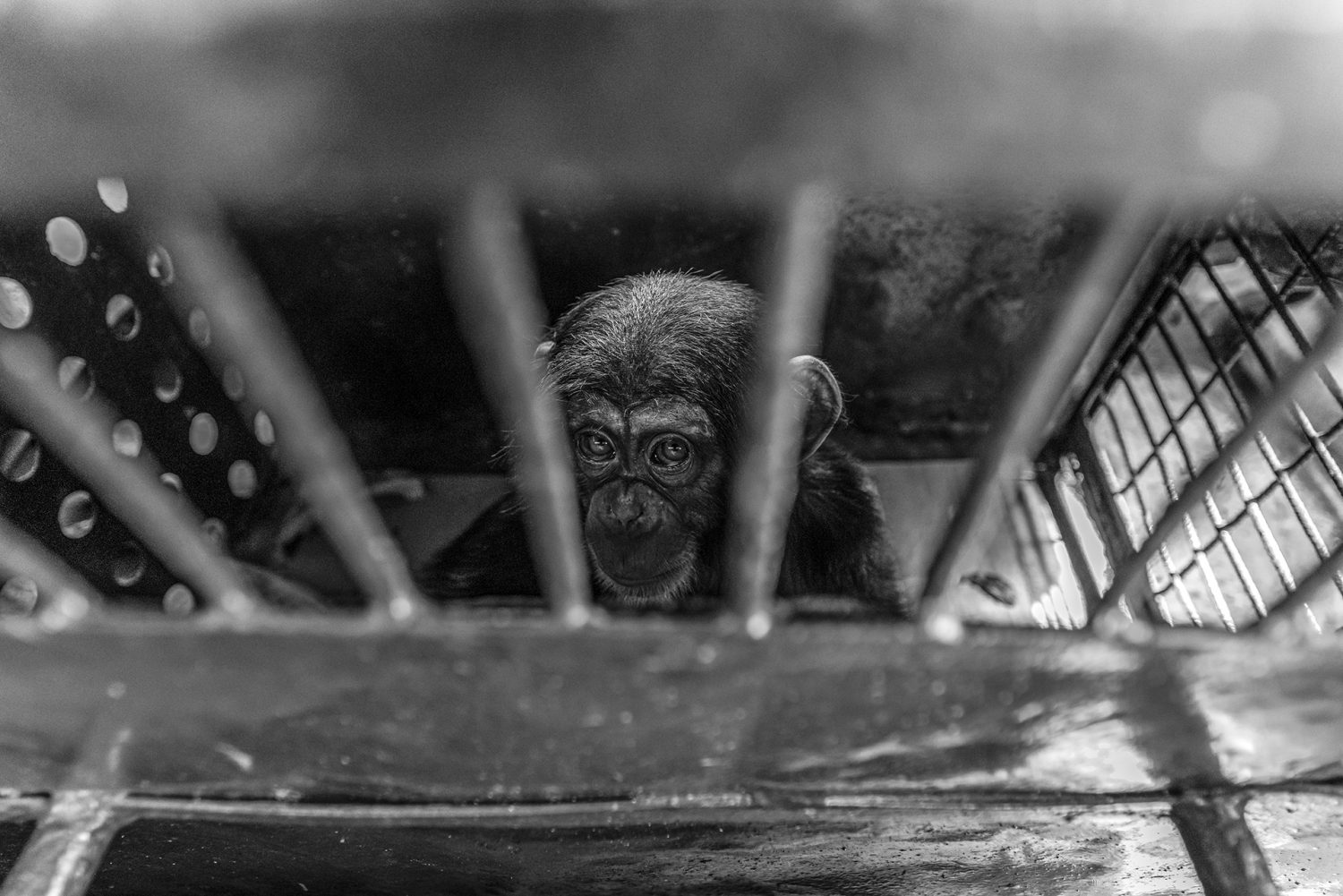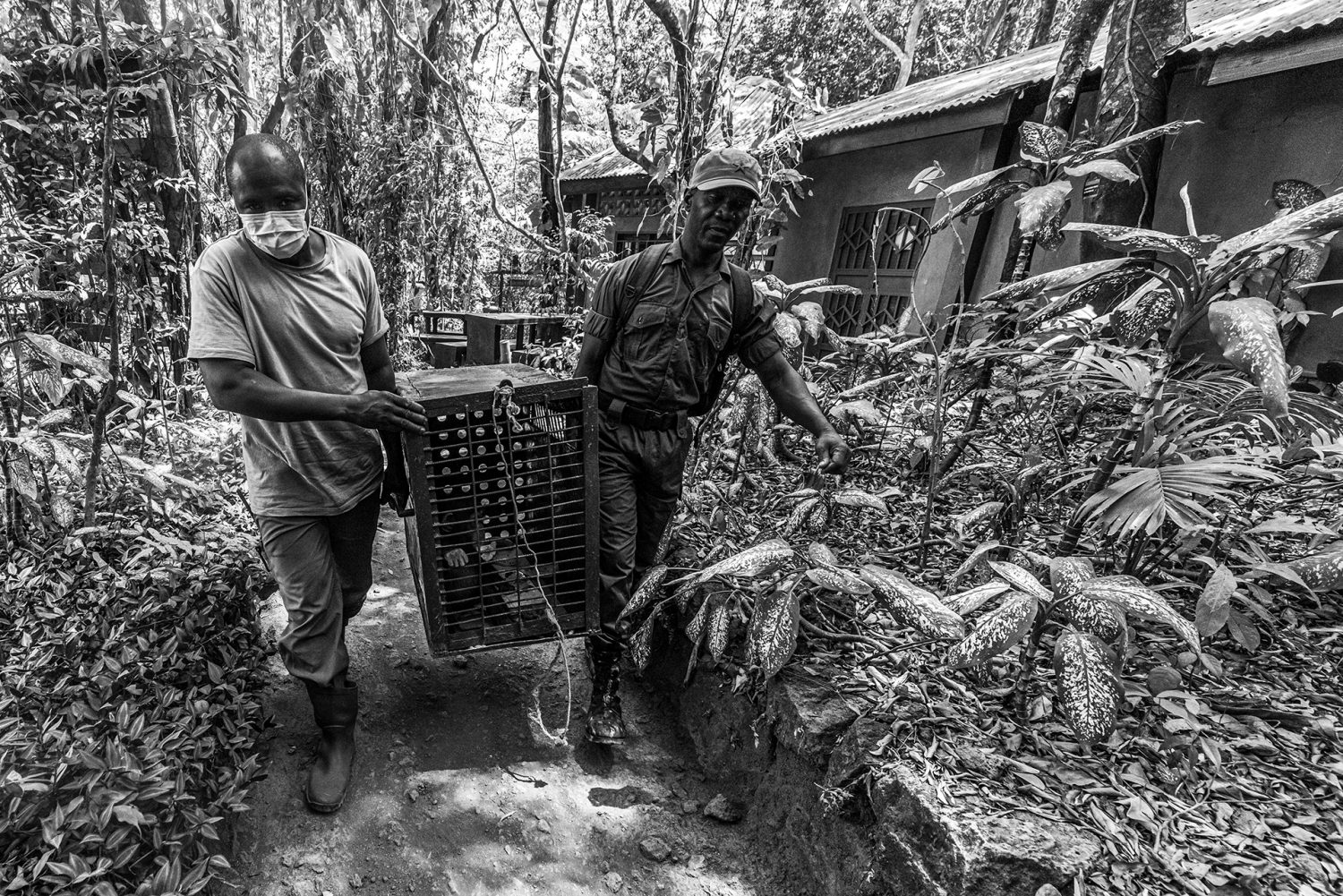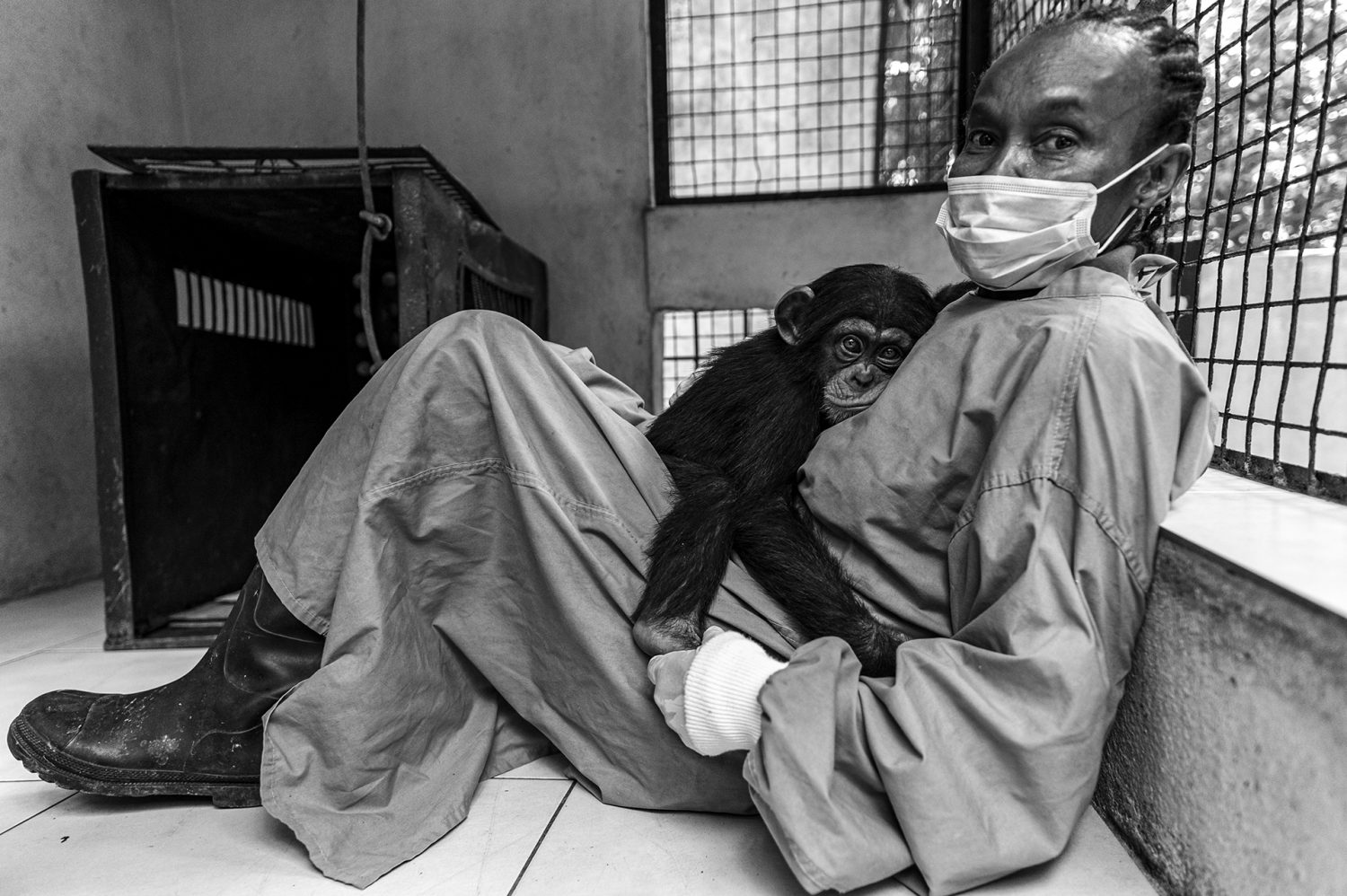Instagram
Pages
Tacugama Chimpanzee Sanctuary, Sierra Leone, March 2020
When their mothers are illegally killed by bushmeat poachers, many baby chimps end up in the community traded as pets – a practice which is also against the law. Over time, Tacugama has established a network of contacts on the ground, ready to report any animals snatched from the wild. Although a great deal of effort has been invested in education, the number of incidents is still worryingly high.
When we arrive in a suburb on the outskirts of Freetown, a two-and-a-half-year-old chimp has a rope tied around his belly, held tightly by a young boy. No longer a novelty, the “pet” has become too much hard work, and the “owner” admits they were on the verge of killing him.
Once confiscation papers have been signed, Tacugama’s resident rangers, Pastor and Willy, inform the local community about the illegalities of their actions and load the chimp into our car. The distressed juvenile hugs Willy; an action which leads me to believe he fully understands he’s being taken to a safe place. The entire journey back to the sanctuary he stares at me. I’ll never forget that desperate look in his eyes.
Mama P, who has already reared 90-100 orphaned chimps, will be a surrogate mother to newly-named Julius. For the next three months, he will be placed in quarantine, receiving daily medical checks, before finally being introduced to other chimps.
On average, Tacugama rescue two chimps per month, giving them a chance for a happier life. But space at the sanctuary is an ongoing challenge, and until the bushmeat trade ceases, it’s likely the number of residents will continue to grow.









